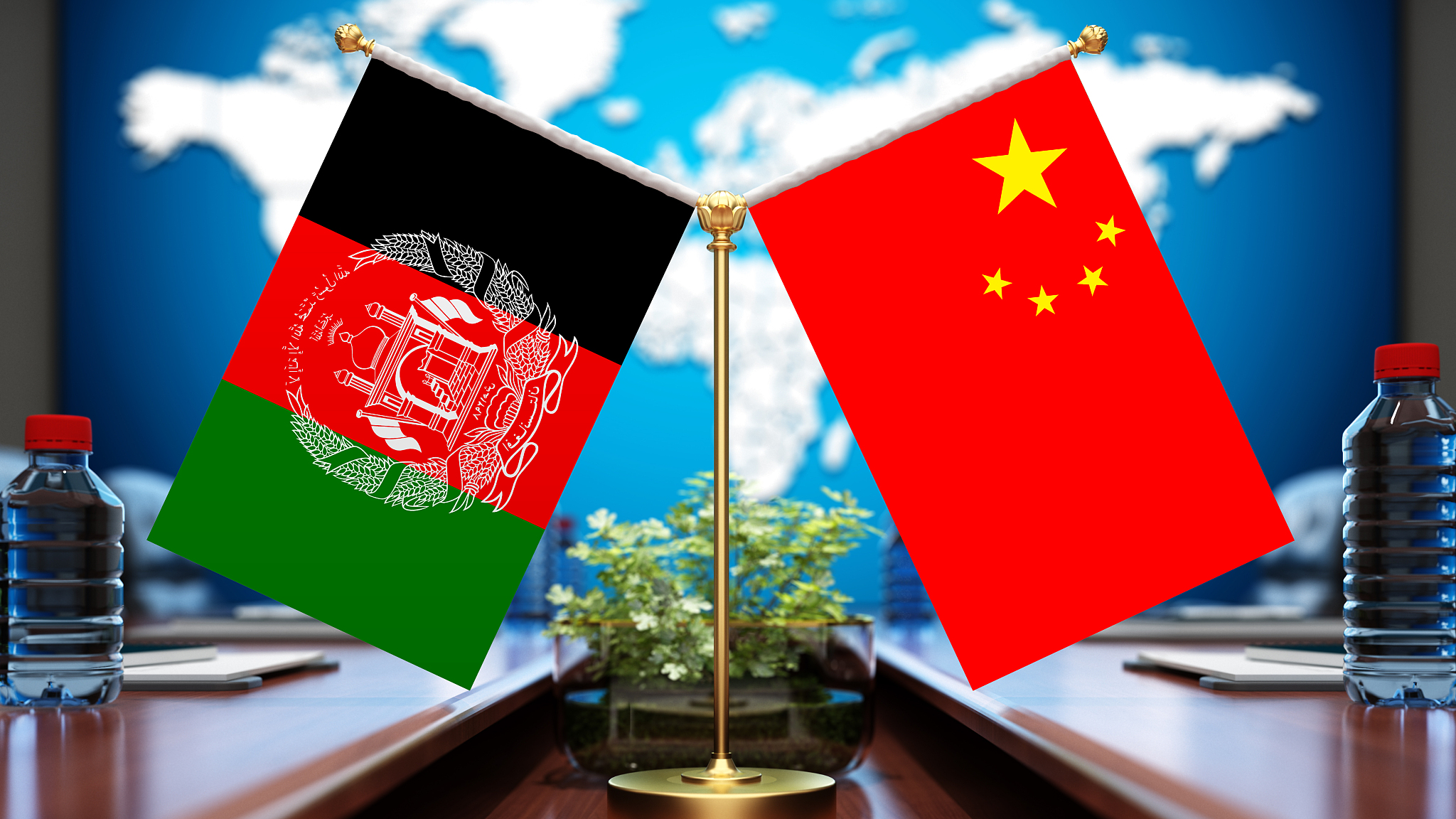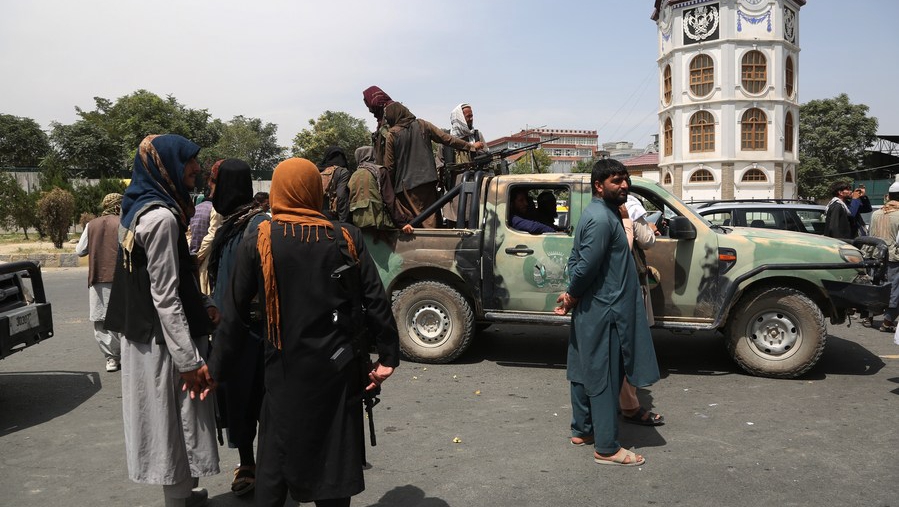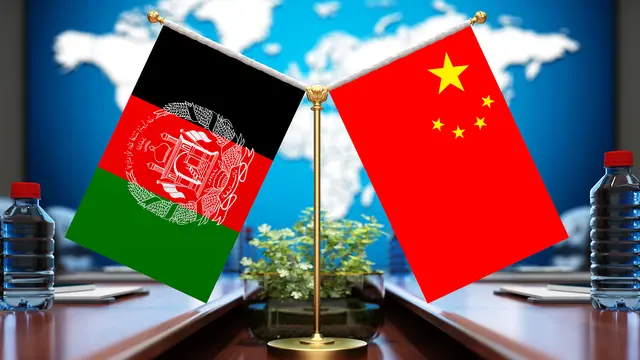
VCG
Editor's note: Alessandro Golombiewski Teixeira is a national thousand talent distinguished professor of public policy at the School of Public Policy and Management, Tsinghua University, and a professor of international business at Schwarzman College in Tsinghua. He is a former special economic advisor to the president of Brazil and former Brazilian minister of tourism, and minister of development, industry and foreign trade. He was also president of the World Investment Association – WAIPA. The article reflects the author's views, not necessarily those of CGTN.
I wrote here several weeks ago about the situation of Afghanistan and the Afghan people. My main point at the time was that the U.S. has abandoned the country without a clear strategic plan to rebuild it. Unfortunately, I failed to see how drifted the U.S. policy to Afghanistan was and to realize that the U.S. has never intended to rebuild or help Afghans.
Since the announcement of American troops' withdrawal, the Western media and many international analysts have pointed fingers at China and Russia, just because they opened talks with the Taliban, stating that they have been moving behind the scenes to increase their influence on the region instead of giving help. It is important to completely refute this allegation for the simple fact that the U.S. itself was the first country to recognize the Taliban as a political force, and "sit at the negotiation table" with the Taliban to create an escape strategy from Afghanistan. The U.S. reopened its negotiation directly with the Taliban in 2019 and after six days of discussions, U.S. special envoy Zalmay Khalilzad declared that the "direct talks between the U.S. and Taliban in Doha has led to a 'framework' for a peace agreement."
As The New York Times reported, based on an interview with Khalilzad, the broad contours of the framework are a commitment by the Taliban not to allow terrorists to use Afghan territory to mount attacks on the U.S. and its allies. It was never their intent from the beginning to rebuild the country, to help to achieve any kind of economic development, or to bring peace. For this reason, it is essential to highlight the extreme emergency for China to open a direct dialogue with the Taliban. China is the only country that can do this now for at least three reasons:
First, the American experience and the lack of moderator power in the world. In modern history, every place where the United States has stepped in to help or to so-called "represent the democratic world," it has been done with military power (Vietnam, Iraq, Iran, Syria, and Afghanistan as examples).There is not a single good example of social or economic changes in these locations. There are only stories of military invasion, economic appropriation, and a few infrastructure projects to benefit only the American corporations and the so-called local American "aligns."
As a good example, Afghanistan signed a Trade and Investment Framework Agreement (TIFA) with the United States in 2004. Since then, the exports from the United States to Afghanistan increased 525 percent from $150 million in 2004 to $937 million in 2017. Clearly, in all cases, the U.S. has used the excuse of bringing development, justice, peace, or any kind of "Western democracy features" which they have failed to do. Besides, the U.S. government has dynamited different interventions by the United Nations and has been increasingly criticizing multilateral approaches to international conflicts.
Although the developed countries among the G7 are trying to find a way to help the Afghanistan catastrophe (UK Foreign Minister Dominic Raab, issued a communique last week under the G7 asking the international community to unify their actions), they have lost the real-time opportunity to help the Afghans. The United States and its allies have failed to be a moderator power in the region but only created resentment. Now it is time for us to realize that the world, especially after the COVID-19 pandemic, needs leader nations who do not put their own interests first.

Taliban fighters are seen in Kabul, capital of Afghanistan, August 17, 2021. /Xinhua
Second, China has the right policies and attitude to moderate world conflicts, especially in Afghanistan. According to the Chinese Foreign Ministry, China respects the Afghan people's right to decide on their own future independently.
Taliban understand that China has no interest in using its military power. On the contrary, China's actions have always been as a moderator respecting national sovereignty. So, the no-intervention attitude qualifies China as the major moderator nation, not only for this international conflict but also for the future world necessity.
Third, China needs to help the region to achieve peace and to rebuild the country due to its geopolitics importance. Afghanistan and China have a nearly 80-kilometer border through the Wakhan Corridor Valley where the East meets the West in the Central Asia region, and the country is central for the Belt and Road Initiative. In doing so, the world will recognize the differences between the U.S. and China in their leadership regarding development.
Finally, it is important to highlight that President Joe Biden has taken an indecent position in blaming Afghanistan for the Taliban's swift conquest after the U.S. withdrawal, arguing that "American troops cannot and should not be fighting in a war and dying in a war that Afghan forces are not willing to fight for themselves."
It is unbelievable to see such affirmation when we confront the numbers collected by Harvard University and Brown University. The data has shown that 2,448 U.S. troops, 3,846 U.S. contractors, 66,000 Afghan military and police, 47,245 Afghan civilians, and 72 journalists have been affected in this tragedy. We expect that President Biden does not consider American lives to be more valuable than the Afghans tragically killed in this war. The only hope we have is that China helps solve this humanitarian tragedy, and brings back happiness for the Afghan people.
(If you want to contribute and have specific expertise, please contact us at [email protected].)
 简体中文
简体中文

